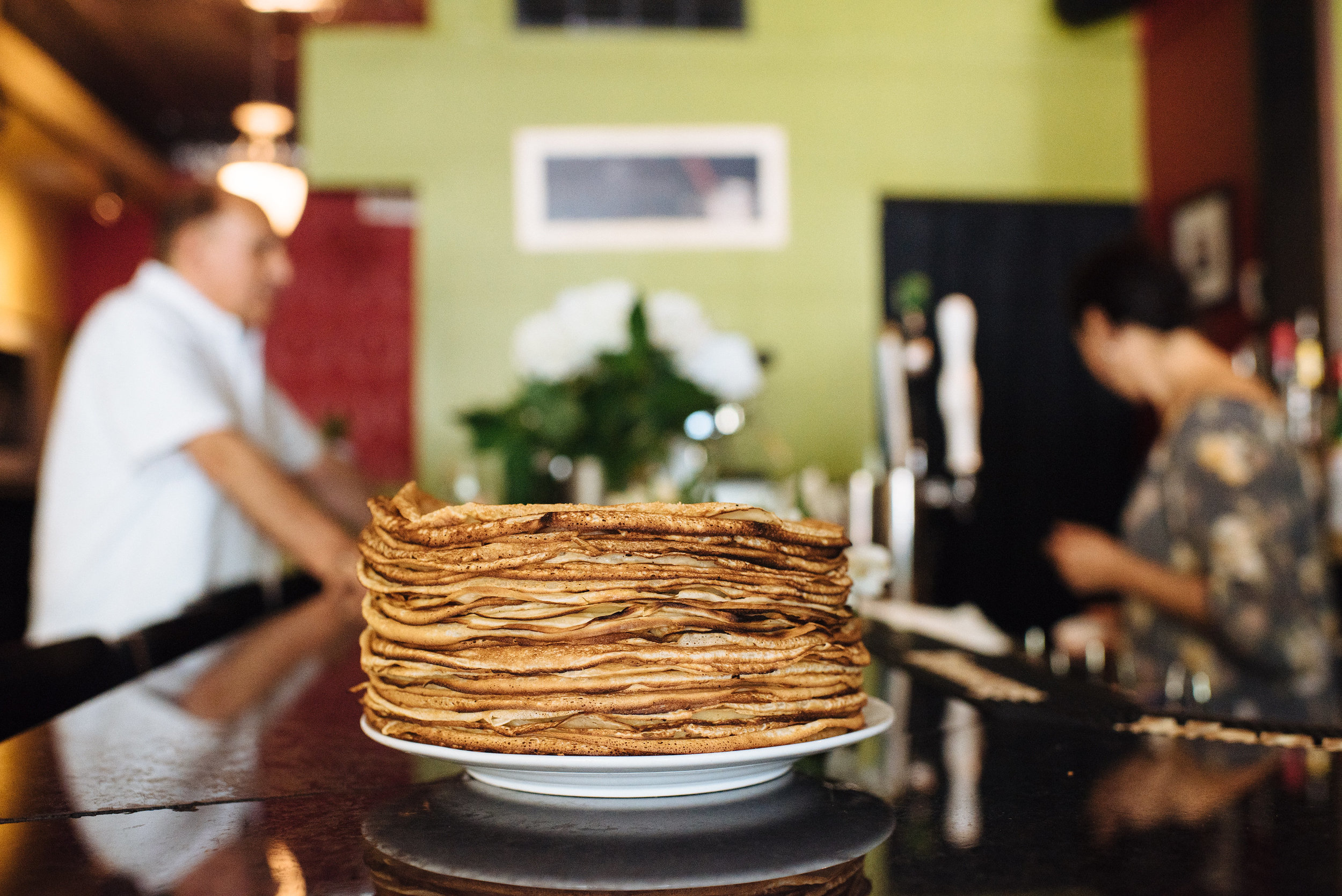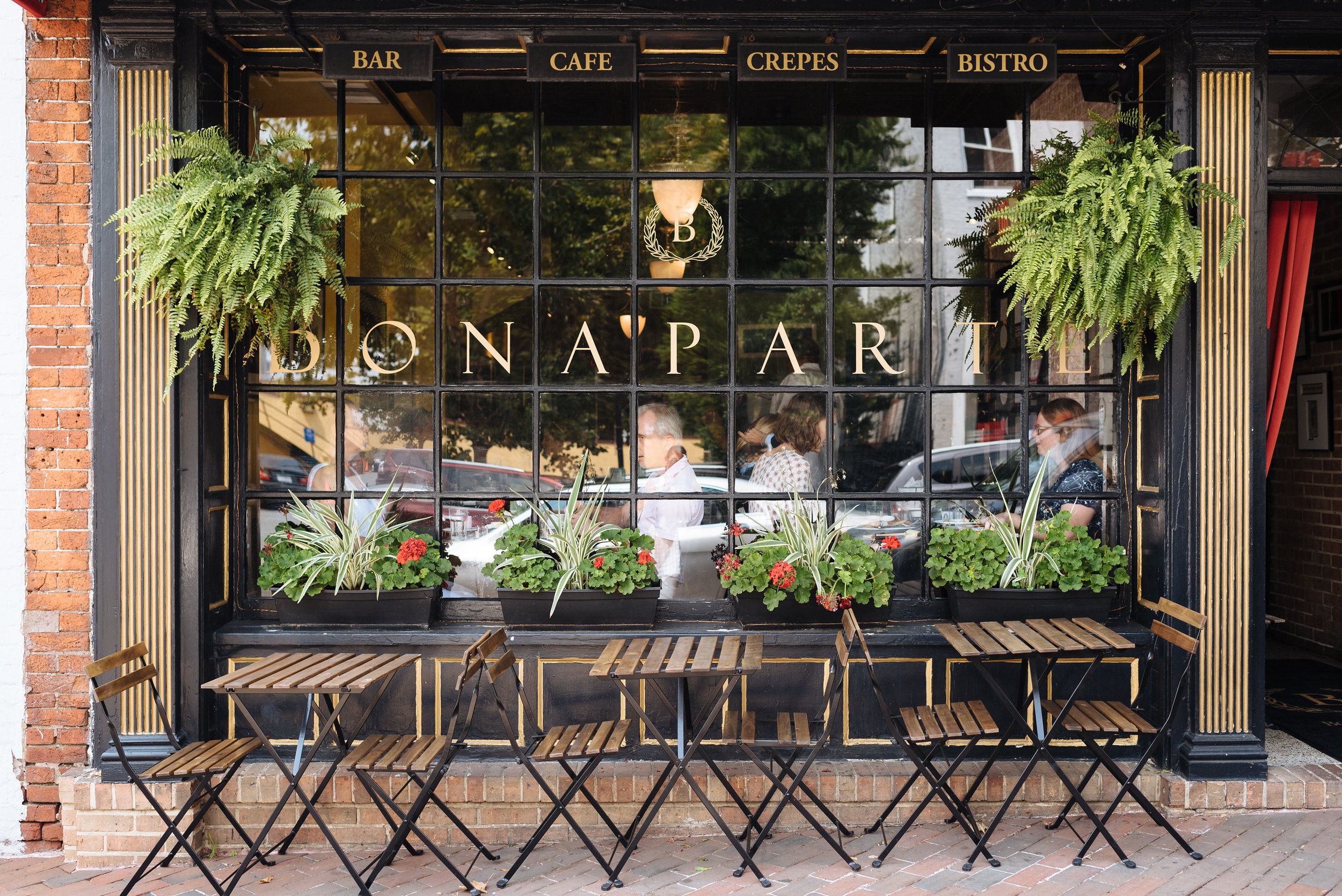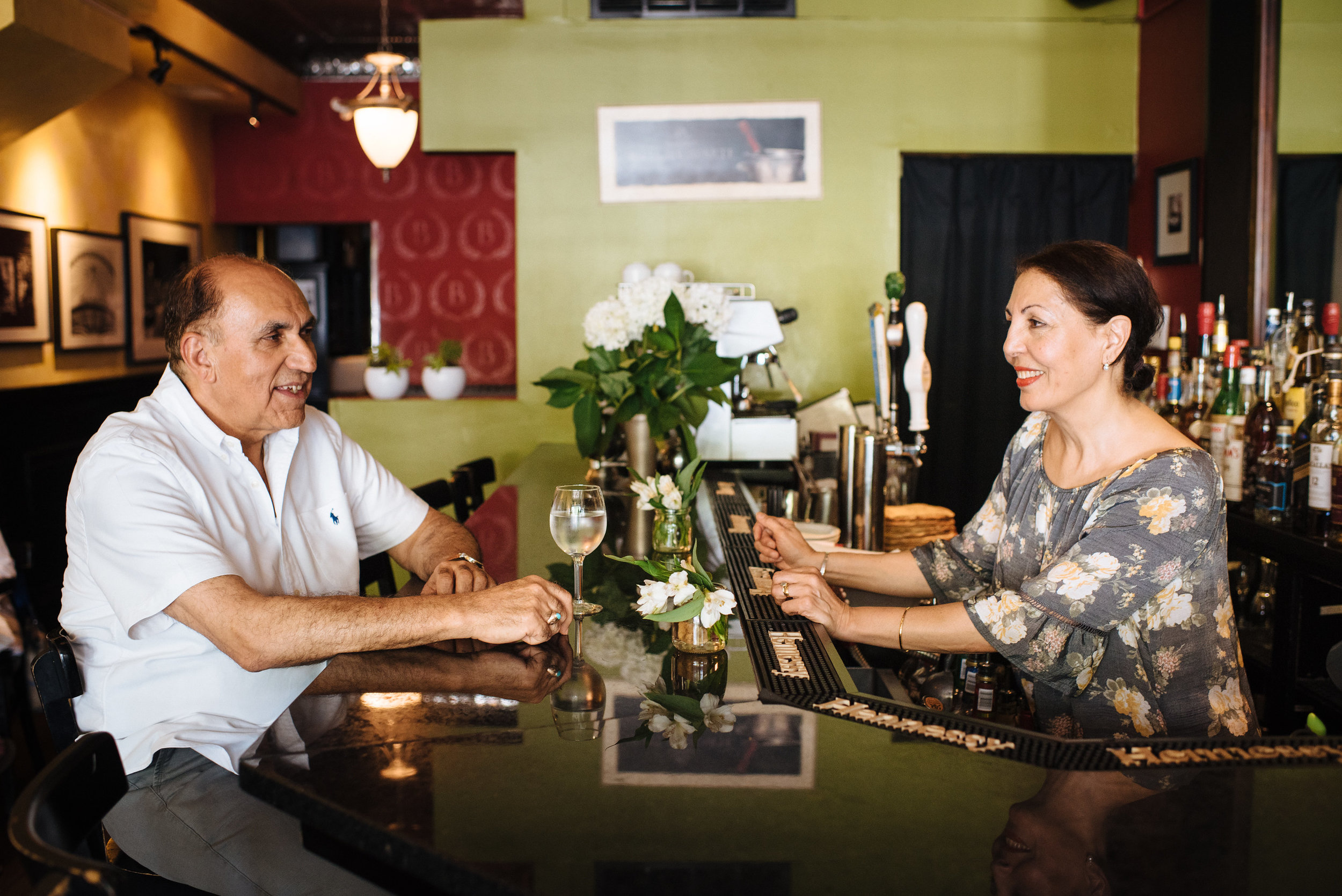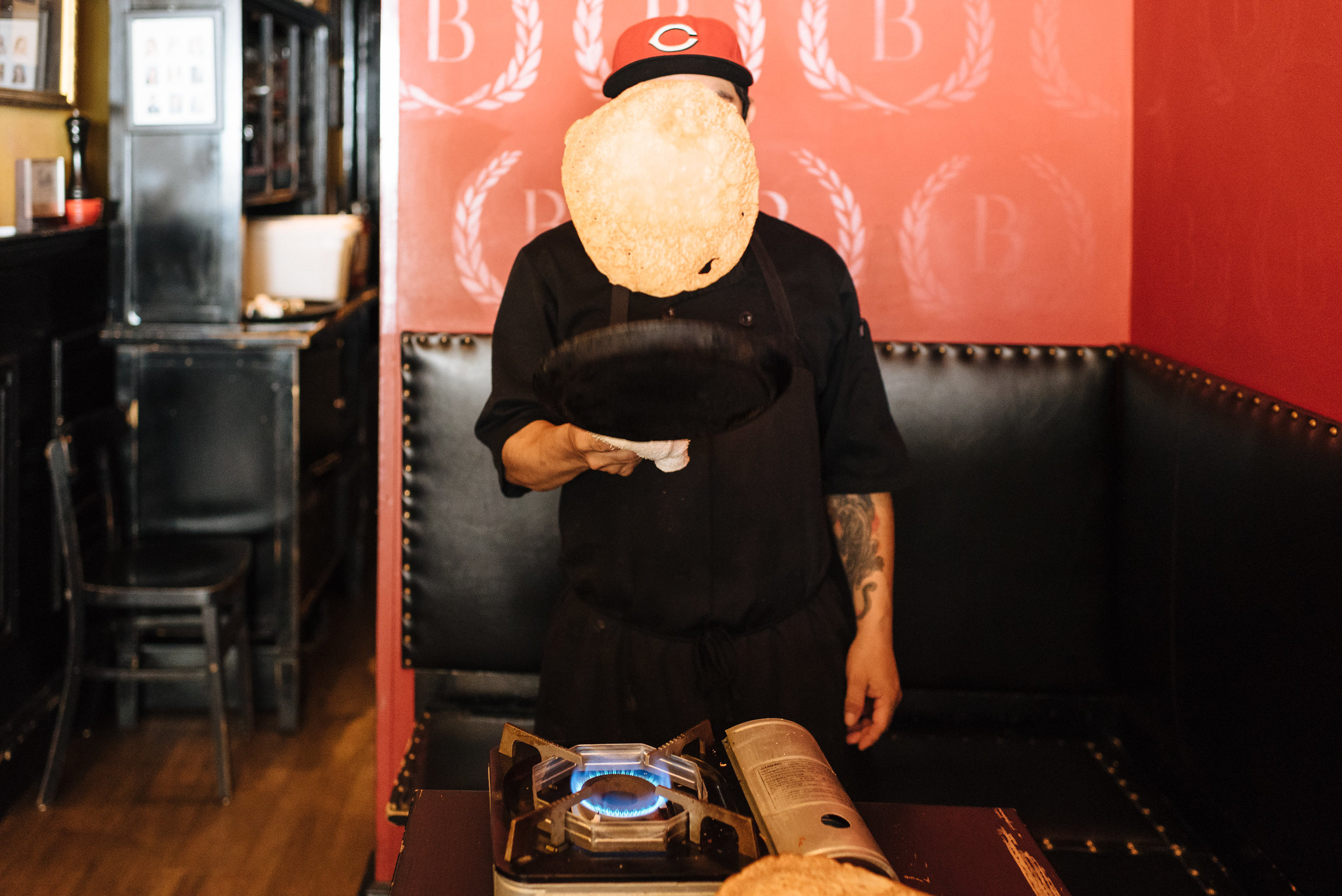‘I Said ‘But This is French; We’re Afghans!’’
The Popals were at a wedding in California when their three children broke the news.
‘They said they got a call from a real estate agent and I said, ‘An agent for what?’’ recalls Shamim, the family matriarch.
Shamim and Zubair’s children were in college at the time—one at Georgetown, the others at GW. After many trips to visit family in Europe, they realized there were no European cafés in town. They’d pitched the idea to their parents, promised it wouldn’t affect their schooling—and then secretly hired an agent.
‘They brought us to Georgetown to show us the space, which was a small catering place on Wisconsin Avenue with large windows,’ Shamim says. ‘The agent opened the door and the kids said, ‘This is the café we were looking for!’ I’m always sort of nervous, but they were already planning what they were going to do there. They said, ‘We shouldn’t have brought mom here.’’
Her husband was an easier sell. Zubair had a background in hospitality, working in their home country of Afghanistan for InterContinental Hotels for years. When the Soviet-Afghan war began in 1980, the Popals moved to the Persian Gulf area of the U.A.E. for seven years—living out of nice hotels in Bahrain, Dubai, and Abu Dhabi.
‘We were waiting for the situation to get better in Afghanistan so we could go home,’ Zubair says. ‘But then things never happened that way—they got worse—and the kids were growing up and they needed a home. So we decided to come to the states.’
In 1987, the Popals moved to Springfield, Va. Zubair traveled to the U.S. before, but for Shamim and their 11, 10, and 7-year-old children, it was a blind leap of faith.
‘We came to Virginia because our children’s education was very important. We couldn’t afford private schools, and we heard Fairfax schools were the best,’ Shamim says.
The transition was not easy. The Popals knew each other since childhood and were established in Afghanistan—Zubair in his dream job while Shamim took care of the children and a cook made all their meals. Hotel life was equally wonderful.
In the U.S., Shamim had to learn to cook, navigate a new school system and find a job outside of the home for the first time. She accepted a position as an accountant at a private school, and Zubair found work at a Honda dealership.
‘I was always telling Zubair, ‘Why did we come here?!’ Shamim laughs. ‘We went through many hardships.’
Now standing in the vacant Wisconsin Avenue space 15 years later, Shamim braced herself for potentially yet another.
And yet six months later, Café Bonaparte opened. The Popal children had a clear vision for the dining room, and hired an architect and painter. Zubair and Shamim went every night to oversee the process.
‘At one point my husband said, ‘Are you opening a museum or a restaurant; when are you going to open this place?’’ Shamim recalls. ‘They were looking at every single detail, and they all had full-time jobs. My one son is a diplomat with the State department and the other was coming every night from Merrill Lynch. But slowly, slowly as the restaurant opened, we were all so passionate.’
Their daughter, Fatima, became involved with the management of Café Bonaparte, and Shamim took over in the kitchen.
‘I’d only ever cooked at home for the kids and my husband. This is French food; we’re Afghans!’ But to tell you the truth, most great French chefs use eastern spices. French food is very rich, but to us it was a little bit tasteless. It need garlic, needed this, needed that. I just made some adjustments, and twisted the food a little.’
When Café Bonaparte opened in July 2003, it was a labor of love for the entire family. The café quickly became a neighborhood favorite, and just three years later the Popals opened a second French café in Adams Morgan. A few years later, a third French café on K St in Georgetown.
‘I never thought we’d open an Afghan restaurant, but then Afghanistan was becoming very famous, and people were traveling there and recognizing our food and culture,’ Shamim says. ‘Even our own Georgetown customers said why don’t you open an Afghan restaurant?’
Their son, Omar, convinced his parents it was time to turn their Adams Morgan café into an Afghan restaurant called Lapis. They called a family meeting and named Shamim the new chef.
‘It took me almost a month to write the recipes, which are about 50 pages,’ Shamim says. ‘Everything was so new to our cooks. They were cooking French food and I asked if they wanted to stay with us and learned Afghani cooking. They all stayed and I taught every single one of them how to cook our food. The kids started decorating the dining room, and it took us two weeks to turn Napolean into Lapis. It was really fast—all of us helping, working late nights, writing menus, bringing in Afghan carpets.’
Three restaurants later, the Popal children are still trying to convince Zubair and Shamim to push further. But their origin story remains at Café Bonaparte, the unlikely melding of two cultures that sparked a new American dream for the Afghani family.
‘We survived, and now were are very happy with the kids and the life that we have.’






